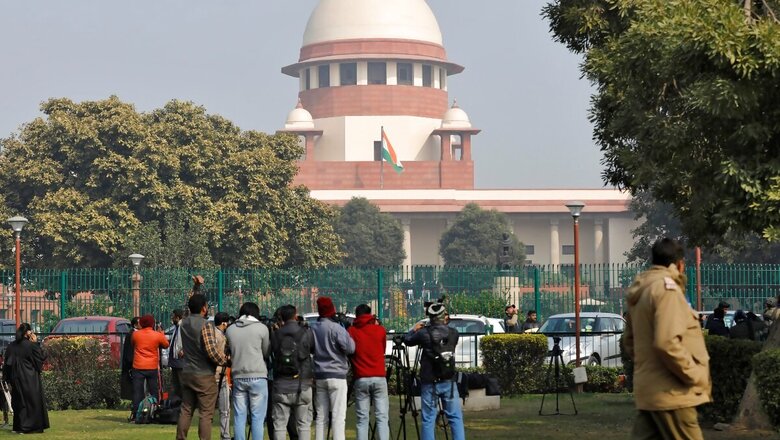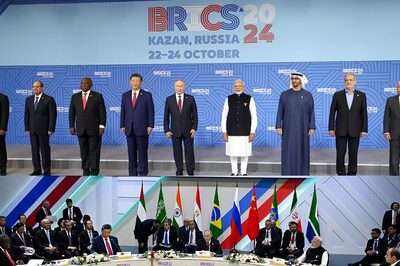
views
The Central government has opposed the Supreme Court’s call for new guidelines to regulate TV channels.
In its affidavit before the apex court, the Ministry of Information and Broadcasting has said that a broader exercise, which is too general in nature is neither warranted nor permissible since every matter will need to be adjudged on its own facts.
The Ministry has filed its reply to a bunch of pleas against telecast of a show by Sudarshan TV channel on entry of Muslims in civil services.
A bench, headed by Justice DY Chandrachud, had on Tuesday restrained the channel from broadcasting subsequent episodes of this programme, and expressed disposition to have a set of guidelines for the electronic media.
Adjourning the matter to Thursday, the bench had also observed that it was contemplating having a panel of distinguished persons to suggest these guidelines.
But the court’s views have not found favour with the government, which has said there are already self-regulatory and statutory regimes in place to deal with complaints, besides the Supreme Court’s own judgments on this point.
“Subject matter of the present petition namely balancing between the journalist freedom and responsible journalism is a field already occupied either by the statutory provisions made by the Parliament or by the judgments of this Hon’ble Court,” stated the affidavit.
It added: “The present petition be confined to only one channel namely Sudarshan TV, and this Hon’ble Court may not undertake the exercise of laying down any further guidelines with or without appointment of an Amicus or a Committee of persons as Amicus.”
Alternatively, the government said that if the court is still inclined to move forward, the first set of regulations must come for the digital media, which has faster reach from wider range of viewership/readership and has the potential to become viral because of several electronic applications like WhatsApp, Twitter and Facebook.
“There is no justification to confine this exercise only to mainstream electronic media,” cobtended the affidavit.
“Considering the serious impact and the potential, it is desirable that if this Hon’ble Court decides to undertake the exercise, it should first be undertaken with regard to digital media as there already exists sufficient framework and judicial pronouncements with regard to electronic media and print media,” the government submitted.
Citing two judgments by the Supreme Court from 2014 and 2017 that acknowledged existence of a complaint redressal mechanism for electronic media, the Ministry said that in view of the settled legal position, the top court may not initiate a general exercise to lay down guidelines across the board.




















Comments
0 comment